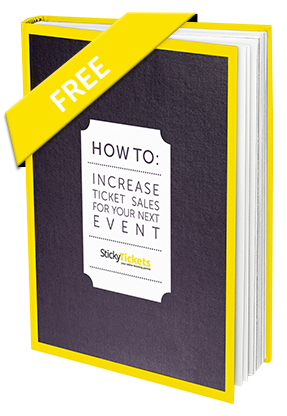Event Marketing in 2024. Strategies That Work!

In the fast-paced world of 2024, marketing your event requires a dynamic and multi-faceted approach. As the digital landscape continues to develop, it is important to stay ahead by leveraging the latest marketing strategies and technologies. From building a solid online presence to engaging with your audience on social media, every touchpoint creates a buzz around your event.
Implementing a comprehensive online ticketing solution is central to your event’s success. An efficient ticketing platform streamlines the ticket purchase process for your attendees and provides valuable insights and tools to enhance your marketing efforts. Integrating a user-friendly and secure ticketing system can offer a seamless experience that encourages ticket sales and helps you easily manage your event.
Types Of Events That Need Marketing in 2024

If no one knows about your event, how do you expect anyone to attend? Marketing is crucial because it drives awareness, generates interest, and ultimately gets people there. Effective marketing strategies generate excitement, attract the target audience, and maximise ticket sales or registrations for all occasions. These are the most common events that need marketing efforts for success.
Corporate Conferences and Trade Shows
In 2024, corporate conferences and trade shows are essential for networking and showcasing products. These events use virtual reality (VR) and augmented reality (AR) for immersive experiences and often feature hybrid formats to reach global audiences. Sustainability and inclusivity are major focuses, with green practices and diverse accommodations becoming standard.
Music Festivals and Concerts
Music festivals and concerts cater to diverse musical tastes, from large-scale events with international stars to niche festivals for specific genres. They incorporate live streaming, AR experiences, and advanced ticketing options. Eco-friendly initiatives, such as reusable cups and waste reduction programs, are increasingly common.
Health and Wellness Retreats
Wellness retreats, yoga festivals, and holistic health conferences will be popular in 2024. These events offer activities like mindfulness workshops, fitness classes, and nutrition seminars. Technology integration, such as wearable fitness devices and personalised health apps, enhances attendee experiences. Mental health focus includes stress management and meditation sessions.
Tech Expos and Startup Showcases
Tech expos and startup showcases highlight AI, blockchain, and biotechnology advancements. Features include interactive demos, pitch competitions, and networking sessions. Hybrid formats allow global participation, and VR and AR create engaging experiences.
Educational Workshops and Seminars
Educational events cover industry skills, leadership training, and personal development. Hybrid workshops with in-person and online components are in demand. Interactive elements like live Q&A, hands-on activities, and AI-driven personalised learning paths enhance engagement.
Community and Cultural Festivals
Community and cultural festivals celebrate diversity through traditions, arts, and cuisines. Inclusivity and accessibility are priorities, ensuring participation for all. Technology enhances engagement with virtual tours and live streaming, while sustainability efforts minimise environmental impact.
Sports Events and Competitions
Sports events, from traditional to esports, attract global participants and spectators. Advanced technologies like real-time streaming and VR enhance the fan experience. Interactive elements such as fan zones, meet-and-greets, and solid health and safety measures ensure enjoyable and safe events.
How To Make Your Event Stand Out in 2024

Choosing an online ticketing solution that provides everything you need to create, promote, and manage your event ticketing or guest registrations is the first step to creating an event that stands out from the rest. With Sticky Tickets, every detail is streamlined and efficient, thanks to its comprehensive suite of features tailored to meet the needs of event organisers.
For everything else, this guide will help you with the essential steps to market your event effectively, ensuring maximum reach and engagement. Let’s dive into the detailed strategies to make your event stand out in 2024.
1. Define Your Target Audience
- Demographics: Identify the age range, gender, geographic location, and other demographic characteristics of your potential attendees. Tools like Google Analytics, social media insights, and surveys gather this data.
- Behaviour: Understand your audience’s online habits, such as the social media platforms they frequent, the types of content they engage with, and the events they typically attend. This helps you tailor your marketing messages and choose the proper channels.
2. Develop a Strong Online Presence
- Website: Create a dedicated event website or landing page that clearly presents all event details, including the date, time, location, speakers or performers, agenda, and a prominent call-to-action for ticket purchases. Ensure the website is mobile-responsive.
- SEO: Optimise your website with relevant keywords related to your event to improve its visibility on search engines. This includes meta descriptions, alt text for images, and incorporating keywords naturally within your content.
3. Leverage Social Media
- Platforms: Select social media platforms that align with your audience’s preferences. For instance, LinkedIn is ideal for professional events, while Instagram and TikTok are great for visual and entertainment-focused events.
- Content: Create a content calendar with a mix of posts, including event teasers, behind-the-scenes content, speaker announcements, interactive polls, and user-generated content. Use various formats like images, videos, stories, and live streams.
- Ads: Utilise social media advertising to reach a broader audience. Platforms like Facebook and Instagram offer robust targeting options, allowing you to reach users based on their interests, behaviours, and demographics. Consider retargeting ads to remind users who have previously shown interest in your event.
4. Email Marketing
- Build an Email List: Collect email addresses through sign-up forms on your website, social media, and during previous events. Offer incentives like exclusive content or discounts to encourage sign-ups.
- Campaigns: Plan and execute email campaigns that mix announcements, updates, and reminders. Segment your list to send targeted messages based on recipient preferences and behaviours.
- Personalisation: Use personalisation techniques in your emails, such as addressing recipients by name and tailoring content based on their past interactions or expressed interests. Automated email sequences can help nurture potential attendees from interest to ticket purchase.
5. Use Influencers and Partnerships
- Influencers: Identify and collaborate with influencers with a following that matches your target audience. Give them event details, promotional materials, and exclusive offers to share with followers. Monitor their performance and engagement to assess effectiveness.
- Sponsors: Partner with relevant brands and organisations that can help promote your event. Offer them visibility through your event’s marketing materials and website and during the event itself. Leverage their networks to expand your reach.
6. Content Marketing
- Blog Posts: Publish informative and engaging posts about your event’s theme. This could include interviews with speakers, previews of sessions, industry insights, and other relevant topics. Optimise these posts for SEO to attract organic traffic.
- Videos and Webinars: Create and share video content, such as promotional videos, interviews with key speakers, and behind-the-scenes footage. Host live webinars or Q&A sessions to engage with your audience directly and provide valuable insights related to your event.
7. Comprehensive Online Ticketing Solution
Implement a robust online ticketing system like Sticky Tickets that offers a seamless experience for both event organisers and attendees.
Features to Look For:
- User-Friendly Interface: Ensure the ticketing platform is easy to navigate and has a simple and intuitive process for selecting tickets and completing purchases.
- Customisation: The platform should allow you to customise the ticketing page with your event’s branding, including logos, colours, and personalised messages.
- Mobile Compatibility: Ensure the mobile-friendly ticketing platform lets users purchase tickets easily from their smartphones or tablets.
- Integrated Payment Options: Support various payment methods, including credit/debit cards, digital wallets, and other online payment systems, to cater to various preferences.
- Analytics and Reporting: The platform should provide detailed analytics and reporting features, allowing you to track ticket sales, monitor demographic information, and assess the effectiveness of your marketing campaigns.
- Promotion Tools: Offer features for creating and managing discounts, promo codes, and group rates to incentivise ticket purchases and increase sales.
- Secure Transactions: Ensure the platform uses robust security measures to protect users’ personal and payment information and comply with data protection regulations.
8. Community Engagement
- Forums and Groups: Engage with online forums, discussion groups, and communities relevant to your event’s topic. Participate in conversations, share valuable insights, and subtly promote your event when appropriate.
- Local Listings: Post your event on local calendars, community boards, and online listing sites. These platforms can help you reach a local audience that may be interested in attending.
9. Offline Marketing
- Flyers and Posters: Design attractive flyers and posters and place them in high-traffic areas such as cafes, community centres, libraries, and college campuses. Ensure they include a QR code or URL for easy ticket purchasing.
- Press Releases: Write and distribute press releases to local media outlets, newspapers, and industry publications. Highlight the unique aspects of your event, notable speakers or performers, and any special activities or offers.
10. Post-Event Engagement
- Surveys: Send post-event surveys to attendees to gather feedback on their experience. Use this feedback to improve future events and demonstrate your commitment to attendee satisfaction.
- Content Sharing: Share highlights, recordings, and photos from the event on your website and social media. Encourage attendees to share their experiences and tag your event, keeping the conversation going and building anticipation for future events.
Combining these strategies will help you create a comprehensive marketing plan that effectively promotes your event, engages your audience, and drives ticket sales. Continuously monitor and adjust your approach based on the results to ensure the success of your event. Transform your event planning experience with Sticky Tickets’ online marketing platform. Create, promote, and manage your events effortlessly. Get in touch with Sticky Tickets today and elevate your event to new heights!



